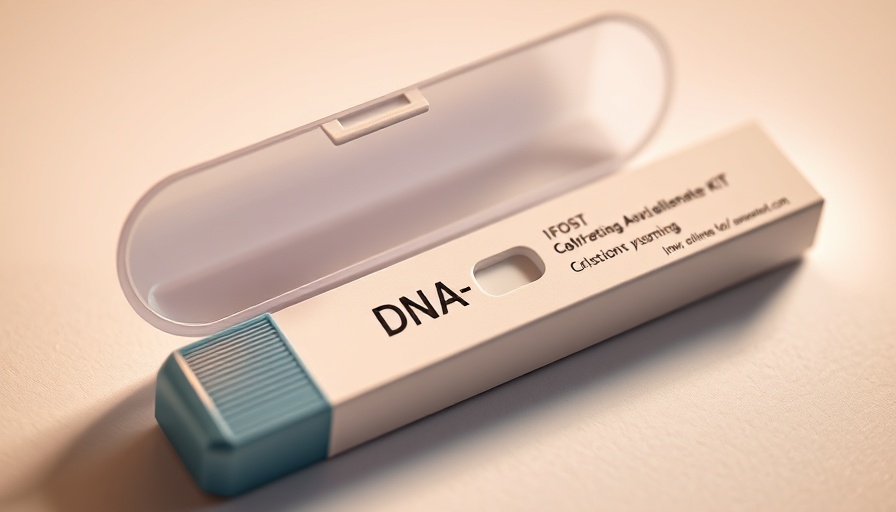
What You Need to Know About the 23andMe Bid and Its Implications
The recent news about the bidding for DNA testing company 23andMe brings to light some intriguing elements of corporate strategy and market competition in the health tech sector. Initially caught in a whirlwind of excitement and possible acquisitions, 23andMe's fate is now shifting dramatically as it navigates bankruptcy and new ownership arrangements.
The Competitors: Who Else Was in the Running?
As the bidding process for 23andMe unfolded, Regeneron emerged as the primary bidder with a $256 million offer. Interestingly, reports suggest that a backup bidder led by former CEO Anne Wojcicki—a notable figure in the genetic testing industry—represents a nonprofit organization. This dramatic turn highlights the evolving landscape of genetic data ownership, where nonprofits may pave the way alongside established pharmaceutical giants.
Understanding the Market Dynamics
Competition among health tech companies is fierce. With the arrival of Regeneron and the backing of Wojcicki's nonprofit, stakeholders are raised questions about the future of genetic research and consumer health services. Companies like Lemonaid Health are also emerging as key players in this evolving marketplace, creating a buzz regarding how genetic information can be utilized to tailor healthcare solutions.
Local Context: The Bay Area’s Influence on Health Tech
The Bay Area continues to be at the forefront of biotech innovation. Home to numerous startups and established firms, this region has a unique advantage thanks to its proximity to leading research institutions and a vibrant venture capital environment. As 23andMe's bidding war unfolds, observers cannot overlook how local industries influence this health tech trend.
What’s Not Included in the Deal?
While the auction for 23andMe highlights its value, it is important to recognize what is not included in the deal. Certain customer data protections may lapse, causing potential implications for privacy rights and corporate responsibility. This missing aspect serves as a cautionary tale, stressing the importance of safeguarding consumer data in an age where personalized medicine and consumer-centric models are gaining traction.
The Significance of Consumer Genetic Data
More than just commercial value, the consumer genetic data market has ethical implications as well. As companies like 23andMe and Regeneron vie for dominance, the potential for data misuse remains a dominant concern. Individuals must remain informed about how their genetic information might be stored, used, or sold. Awareness can empower consumers, enabling them to advocate for stronger data protections in health tech.
Future Predictions and Trends in Genetic Testing
The future of genetic testing is undoubtedly entwined with technological advancements and regulatory challenges. As companies expand their platforms, we may see an increase in gene therapies that are more accessible to everyday consumers. The ongoing competition among industry players signifies that the consumer will likely benefit from improved services and innovative product offerings.
Actions You Can Take Now
As a consumer in the evolving health tech landscape, consider your own engagement with genetic testing services. Research various companies before making any commitments. Additionally, stay informed about the regulatory landscape, as it directly impacts the rights you have concerning your genetic information. By educating yourself and advocating for transparency, you can contribute to a healthier dialogue surrounding consumer genetics.
Having illuminated the recent bids for 23andMe, its implications, and the shifting landscape in health tech, it is crucial for consumers to remain vigilant. Understanding the nuances of data ownership in this sector can empower us to advocate for the ethical use of our genetic information.
 Add Row
Add Row  Add
Add 




 Add Row
Add Row  Add
Add 

Write A Comment